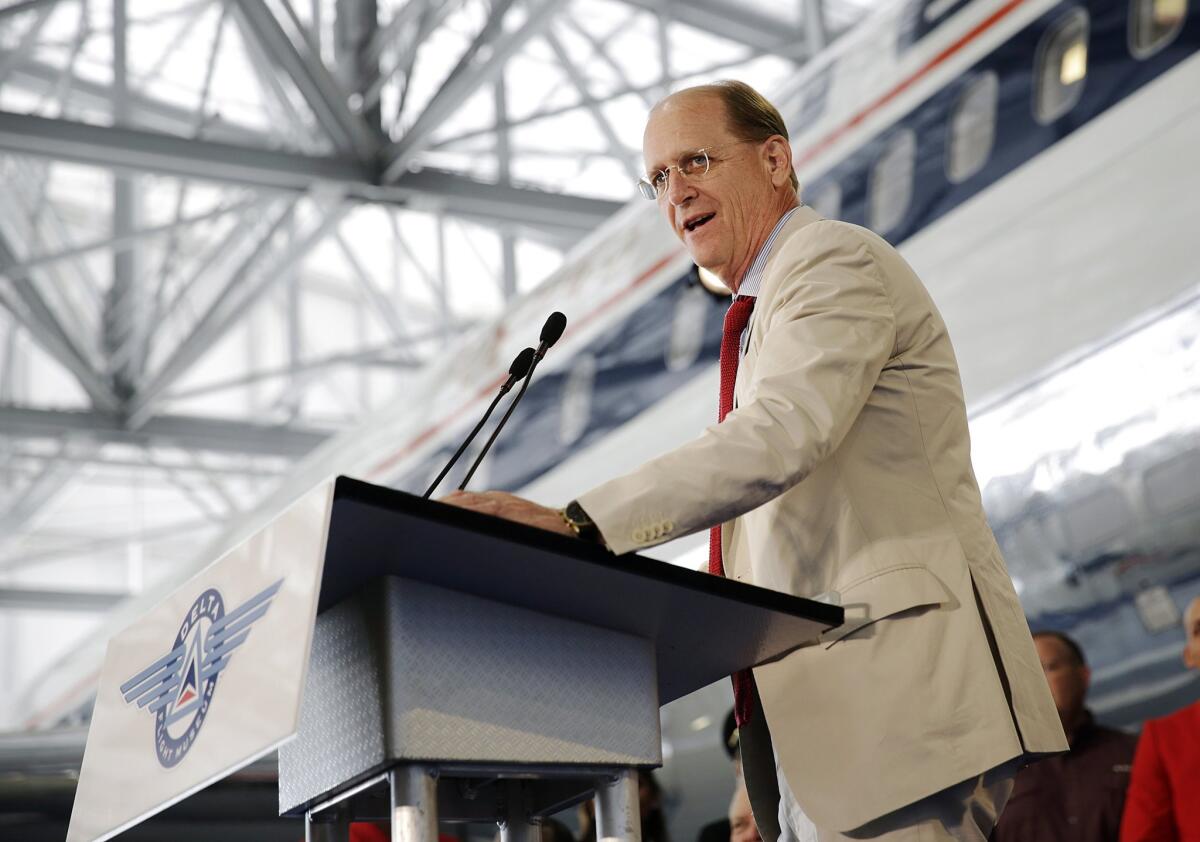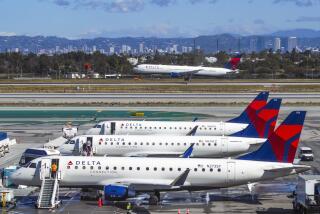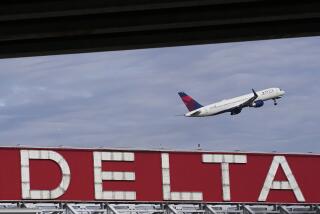War of words erupts between Delta and Emirates over subsidies and 9/11

- Share via
A war of words has broken out between the chief executives of Delta Air Lines and Emirates over government subsidies and the terrorist attacks of Sept. 11, 2001.
Here’s how it all went down:
Delta chief Richard Anderson and other U.S. airline executives have been saying that they can’t compete with Persian Gulf carriers on international flights because the state-owned airlines receive billions of dollars in subsidies from their governments.
The U.S. airline executives have asked federal officials to renegotiate the treaties that allow such carriers to increase flights to the U.S.
The gulf-based airlines shot back, saying U.S. carriers have received government subsidies of their own in the form of government loan guarantees after the Sept. 11 terror attacks and benefits from bankruptcy protections over the last few years.
Anderson got into hot water when he launched a salvo in a televised interview with CNN: “It’s a great irony to have the UAE from the Arabian Peninsula talk about that, given the fact that our industry was really shocked by the terrorism of 9/11, which came from terrorists from the Arabian Peninsula,” he said.
Of the 19 terrorists involved in hijacking the commercial planes on 9/11, 15 were from Saudi Arabia and two were from the United Arab Emirates. The remaining two hijackers were from Egypt and Lebanon.
Emirates CEO Tim Clark said Anderson “crossed the line” when he seemed to link the terrorist attacks to the governments of Saudi Arabia and the United Arab Emirates and the state-owned airlines.
Anderson apologized but Emirates officials are still miffed.
“We believe that the statements made this week by Mr. Anderson were deliberately crafted and delivered for specific effect,” the airline said in a statement.
To read more about travel, tourism and the airline industry, follow me on Twitter at @hugomartin.
More to Read
Inside the business of entertainment
The Wide Shot brings you news, analysis and insights on everything from streaming wars to production — and what it all means for the future.
You may occasionally receive promotional content from the Los Angeles Times.











